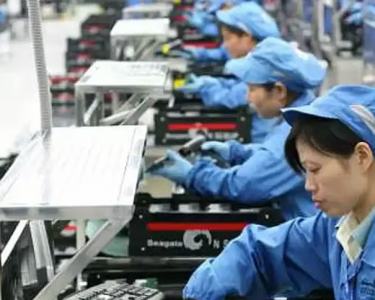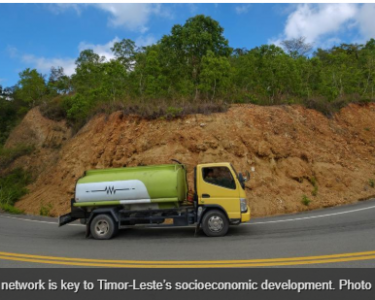
UNITED NATIONS, Aug 23 (NNN-AGENCIES) — The World Meteorological Organisation (WMO) and the World Health Organisation (WHO) are warning that extreme heat driven by climate change is impacting productivity at the workplace.
A report released by WMO and WHO, which is the first major update since 1969, says that intense heatwaves, that many workers are regularly exposed to are already feeling the health impacts of rising temperatures, in particular, manual workers in sectors such as agriculture, construction and fisheries adding that increasing heat episodes are also leading to health issues for vulnerable populations in developing countries, such as children, older adults and low-income populations.
“Heat stress is already harming the health and livelihoods of billions of workers, especially in the most vulnerable communities,” said Dr Jeremy Farrar, WHO Assistant Director-General, Health Promotion, Disease Prevention and Care, adding that “This new guidance offers practical, evidence-based solutions to protect lives, reduce inequality, and build more resilient workforces in a warming world.”
While addressing a virtual press conference ahead of the release of the report, Climate Change and Workplace, a Senior Director in the Services Division, Dr. Johan Stander said that the state of climate report shows that 2024 was the hottest year on record. “In fact, the last 10 years it was the hottest year on record and this last summer, particularly in the northern hemisphere, we’ve already seen some hottest temperatures in certain areas and records being broken.”
He noted that the rise in temperatures is not just in Europe but is also being seen in other areas including in Africa, North America, and Asia where new record temperatures were recorded, “The Middle East, we’ve seen temperatures in the region of 50 degrees Celsius.”
While calling for adaptation, Dr. Stander said that the rise in temperatures is the new reality. “We are living it every day and every night. We must face up to the future of extreme heat,” he said and added, there is need to heed to early warnings, and take informed actions, plans, and protocols that are an essential part of climate adaptation.”
The Head of Labour Administration, Labour Inspection and Occupational Safety and Health at the International Labour Organisation (ILO) Joaquim Pintado Nunes said the report is timely, as a recent ILO report already revealed that more than 2.4 billion workers are exposed to excessive heat, representing 71% of the world’s total working population.
“This exposure, also according to our estimates, is leading to more than 22 million occupational injuries every year and almost 19,000 fatalities, this underscores the critical needs for urgent and proactive measures,” says Nunes.
Key findings of the report indicate that the frequency and intensity of extreme heat events have risen sharply, increasing risks for both outdoor and indoor workers, this has seen worker productivity drop by 2–3% for every degree above 20°C.
The report shows that health risks including heatstroke, dehydration, kidney dysfunction, and neurological disorders, hinder long-term health and economic security with approximately half the global population suffering adverse consequences of high temperatures.
While the report calls for the implementation of occupational heat action plans, tailored to specific industries and regions, and developed in collaboration with employers, workers, unions, and public health experts, the ILO says it is committed to supporting national and international efforts to improve occupational health using the evidence given by the report.
“It is not only about human well-being and societal resilience, it is also about the economy, as according to our estimates, investing in effective, preventive and protective strategies would save the world double billion dollars every single year,” says Head of Labour Administration, Labour Inspection and Occupational Safety and Health at the International Labour Organisation (ILO) Joaquim Pintado Nunes.
Nunes avers that climate change is reshaping the world of work and without bold, coordinated action, “heat stress would become one of the most devastating occupational hazards of our time, leading to a significant loss of life, a significant loss of productivity, and with catastrophic effects in the future of work” warns the ILO and adds, “We have to act now, the world of work cannot wait longer.”
Among the recommended actions include: Develop occupational heat-health policies with tailored plans and advisories that consider local weather patterns, specific jobs, and worker vulnerabilities; Focus on vulnerable populations with special attention given to middle-aged and older workers, individuals with chronic health conditions, and those with lower physical fitness who can be more susceptible to the effects of heat stress; Education and awareness raising for first responders, health professionals, employers, and workers to recognize and properly treat heat stress symptoms, which are often misdiagnosed; Engage all stakeholders from workers and trade unions to health experts and local authorities in the co-creation of heat-health strategies that are locally relevant and widely supported.
The other recommendations include: Designing solutions that are not only effective but also practical, affordable and environmentally sustainable, ensuring policies can be implemented at scale; Embrace innovation by adopting technologies that can help safeguard health while maintaining productivity; Support further research and evaluation to strengthen the effectiveness of occupational heat-health measures and ensure maximum protection for workers worldwide. — NNN-AGENCIES





